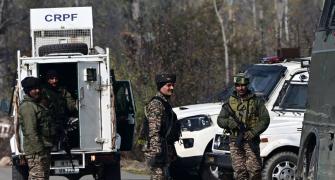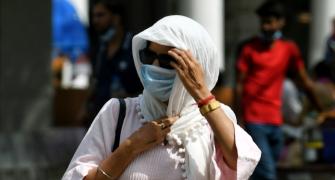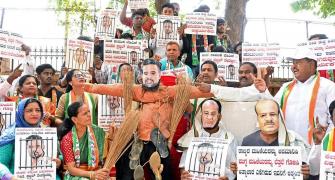Wen said soaring prices remained the "biggest concern" of the government and expressed confidence that it would be able to hold the Consumer Price Index at the targeted 4.8 per cent this year.
Fresh from his re-election as the Premier for another five-year term, Wen told reporters at the end of China's parliament, National People's Congress, session that he would also press ahead with the public finance reforms in the next five years.
Wen, who oversees the management of the world's fourth largest economy, said the country faced the potential risk of fluctuations while dealing with the challenges of prices and mounting inflationary pressure.
"We need to blaze a new trail in between," he said in his two-hour long press conference where he answered wide ranging questions on China's economy.
Wen said the year 2008 would be the most difficult for China's economy because of a "lot of uncertainties inside and outside this country" and "it will be harder to make decisions".
The government had two priorities of preventing the overheating of the economy and at the same time ensuring that China's economy would continue to grow at an appropriate level to ease pressure on employment, he said.
Wen said the government would try to strike a balance between economic growth and bringing down the inflation rate of China and address the problems of "unstable, uncoordinated and unsustainable" development.
China's CPI reached a 12-year high of 8.7 per cent in February. In his report to the NPC, Wen had told lawmakers that the country was facing increasing inflationary pressures and the task of holding down the inflation was difficult.
To be honest with you, holding down the CPI at 4.8 per cent is not an easy job", he said but added that the government was confident of reaching the goal.
Wen also referred to the US subprime mortgage crisis which had led to the US dollar depreciation, high international oil prices and fluctuations in world stock markets and said he was "deeply worried".
"I myself watch very closely the developments in the world economy and the US economy. I am deeply worried", he said. "What concerns me is that the US dollar is depreciating continuously".
He said China was "tied" to the world globalised economy and "all kinds of changes and fluctuations in the international economy will inevitably be reflected on China's own economy".
On the exchange rate of Chinese currency, Yuan, Wen said it is determined by the market forces of demand and supply with reference to a basket of currencies. The Yuan had appreciated by 15 per cent against the US dollar in the last two years and at a faster pace recently.
China's major trade partners accuse Beijing of deliberately maintaining an artificially low value of its currency to give an "unfair" advantage to its exporters.
Wen said China had adopted a tight monetary policy and prudent fiscal policy to face the issues of excessive growth of investment, money supply, credit and ballooning trade surplus.
He also asserted that the fundamentals of China's economy were "sound" and the country still had the vast market potential particularly in rural areas.







